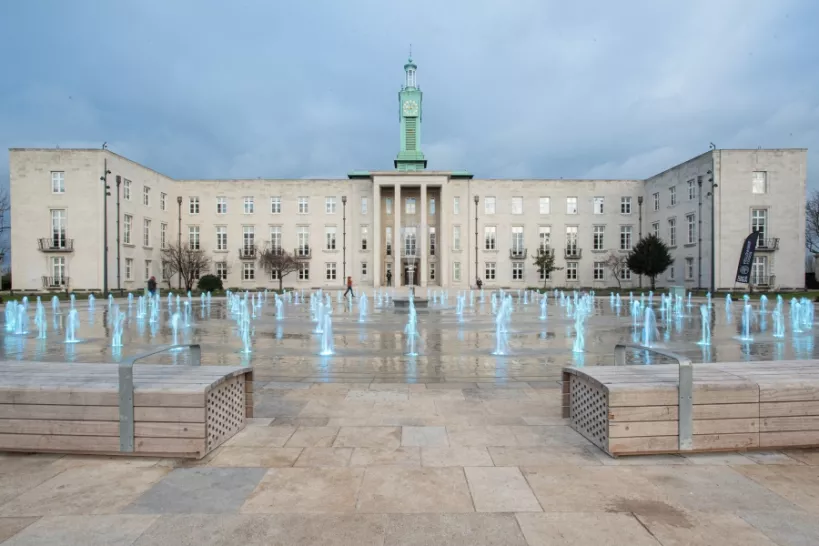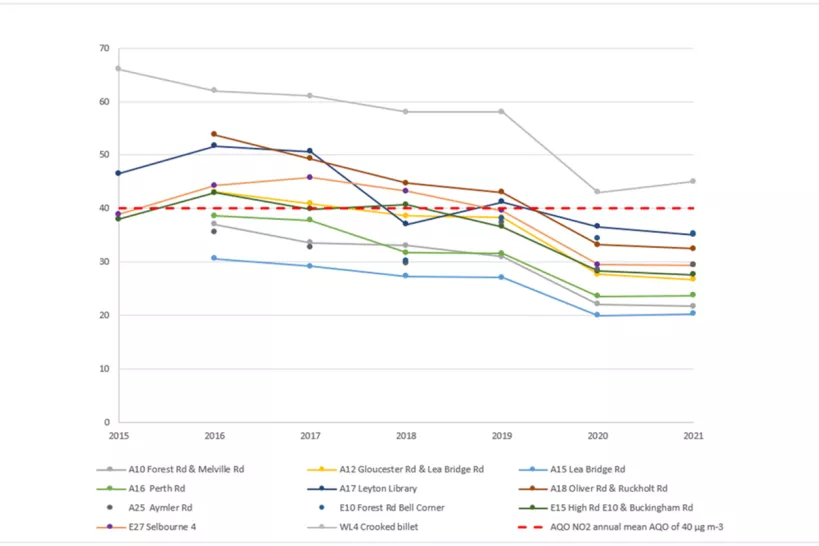Consultation Air Quality Action Plan

In recent years air quality has improved significantly in Waltham Forest, but we know much more still needs to be done to create a clean and healthy borough for everyone who lives, works, and visits Waltham Forest.
Our forthcoming Air Quality Action Plan will set out how we will do so, in partnership with residents, community groups and local businesses.
Background
Local authorities have a duty to review and assess air quality in their area. Where air quality objectives set by the Government are exceeded, the local authority must designate all or part of its area as an Air Quality Management Area (AQMA). It must then prepare an AQAP setting out measures to improve air quality and meet the objectives.
Waltham Forest designated the whole borough as an AQMA in 2001 because of exceedances of Nitrogen Dioxide (NO2) and Particulate Matter (PM10) air quality objectives. The Council has had a series of action plans since then, the current version covering the period 2018 to 2023.
Waltham Forest has been monitoring Air Quality since 2002. Over this time, we have seen considerable air quality improvements including significant reductions in air pollution exposure since the introduction of the Mini-Holland scheme.
The Covid-19 health crisis has resulted in considerable social and economic impacts. Although there are many challenges, a reduction in traffic and pollution has been cited by our residents as a positive from this otherwise difficult time. For many of our residents, living with a respiratory pandemic has highlighted the importance of clean air. Cycling had increased by up to 178 per cent in parts of the borough. As a council, we need to capitalise on this uptake by continuing to promote walking and cycling and thereby improving air quality in the borough. Data suggest that the air quality improvements we saw over lockdown have been mostly retained.
Trends in NO2 concentrations in WF air quality focus areas:

Monitoring data shows that Air quality in Waltham Forest has significantly improved in recent years.
The Council must now develop a new Air Quality Action Plan (AQAP) for the period 2023-2027, which will replace the current AQAP 2018-2023.
About this consultation
We want to hear your views regarding our draft AQAP.
We will consider your views in finalising our 2023-2027 AQAP.
This consultation will run from 7 October to 7 November 2022.
The draft Air Quality Action Plan 2023-2027
The draft plan has four sections:
- Section 1 provides an introduction to the air pollution problem, the role of local authorities in tacking this and what the air quality objectives are
- Section 2 sets out the Waltham Forest context, including the Council’s strategic priorities, pollution levels in the borough, emission sources, and some of the key steps the Council has taken to improve air quality to date
- Section 3 sets out how the new action plan has been developed, including the key priorities that have been developed
- Section 4 is the table of actions that are proposed to continue to work to improve air quality in the borough
The proposed priorities are:
- Dealing with air pollution resulting from construction activities, including non-road mobile machinery
- Tackling domestic wood burning, including enforcement of smoke control area provisions
- Promoting and delivering energy efficiency improvements in domestic and commercial properties
- Reducing the impact of emissions from road traffic, including:
- encouraging walking and cycling,
- implementing temporary and permanent car-free locations, and
- promoting electric vehicle uptake by installing ultra low emission infrastructure
- Working to reduce air pollution around schools
- Reducing emissions from the Council’s own fleet and those of our contractors
- Enhancing the information available to residents about air pollution in the borough and the associated health issues, including promoting the airTEXT service and the Mayor of London’s air pollution forecasts
The action plan maintains a focus on reducing road transport emissions but also has a greater focus on tacking sources of particulate matter emissions, reducing emissions from buildings, and improving information for residents about air pollution and the associated health issues. It is intended that the air quality action plan will align with the Council’s climate emergency action plan.